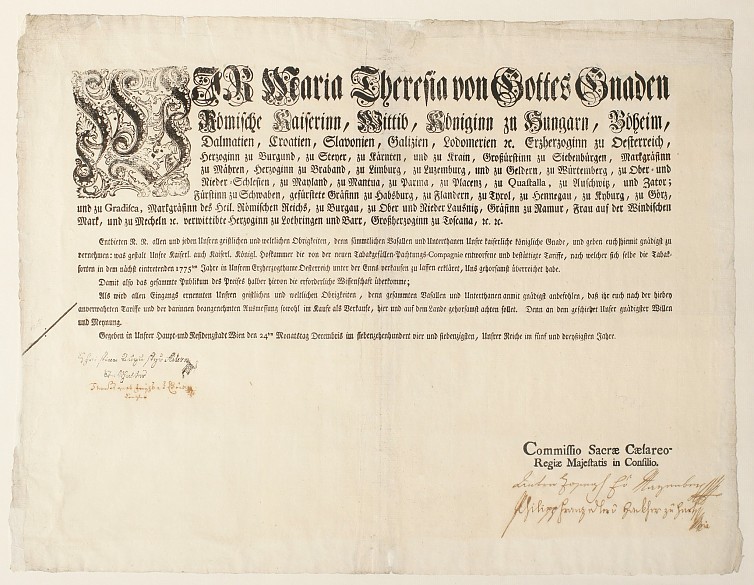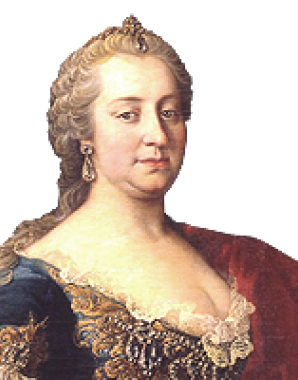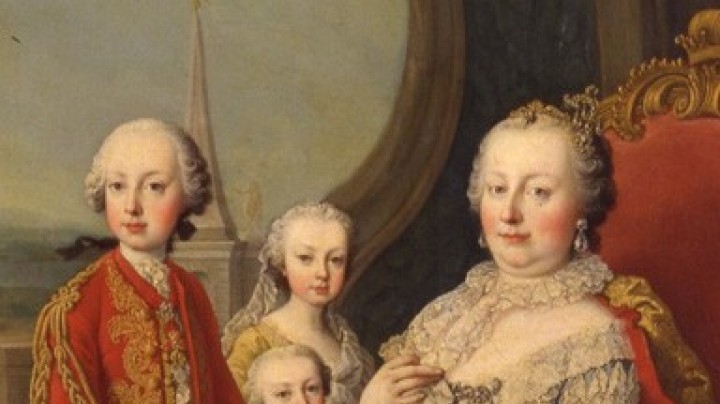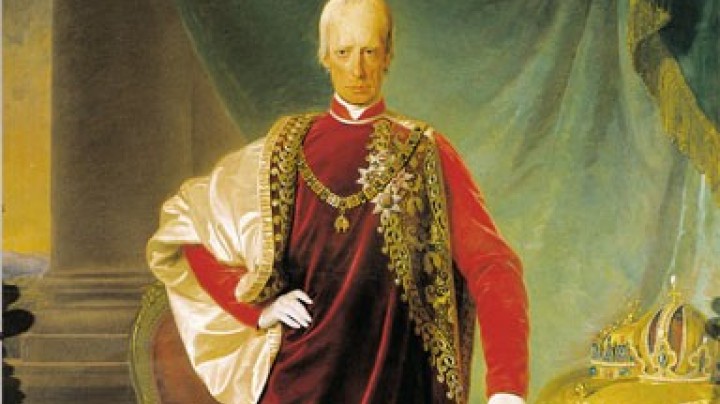For the happiness of the population? State welfare and tax systems
‘Happy’ people: that was the wish of the absolute monarchs. However, when it was a matter of power politics, happiness was no longer a priority.
‘Everything for the people, nothing by the people’: this well-known pronouncement, attributed to Joseph II, sums up the aim of mercantilist policy. The absolute monarchs were supposed to ensure the happiness and welfare of the people living in the Habsburg territories, who in their turn had to be the ‘implementing tools’ of the interests of rulers and state. However, ‘happiness’ was not a matter of the needs or the happiness of individuals but of the well-being of the state, embodied in the sovereign. In order to create this well-being, Maria Theresa had a number of administrative, economic and financial reforms carried out. These included new customs regulations and a re-organization of the tax system.
These measures were not well received, especially by the Estates. The state’s revenue from taxation had two components: the Camerale and the Contributionale. The former was the term for the revenue accruing to the sovereign and was adminstered by the Aulic Chamber (Hofkammer). This body was in effect the Finance Ministry of the Monarchy – hence the term Camerale. On the other hand the Contributionale was paid to the state by the provincial diets from their revenues. While the sovereign could dispose freely of the Camerale, he had to have the use of the Contributionale approved by the provincial diets, whose members were representatives of the Estates. In line with the aim of establishing a centralized state, Maria Theresia had this system reformed, so that it was the state authorities and not the Estates that were responsible for the collection of taxes. This led to a decrease in the political influence of the provincial diets and the aristocracy, while both the power of the state and its revenue from taxation increased.














